Ensuring transparency and accountability of the authorities, supporting social unity and adaptation of displaced persons, promptly responding to the urgent needs of locals, highlighting safety, accessibility of services, and emotional support in war conditions – such ideas, in particular, are being implemented by 15 newsrooms with the assistance of the National Union of Journalists of Ukraine (NUJU) and the German Marshall Fund of the United States.
Currently, the Ukrainian media market is going through difficult times. Declining advertising revenues, rising content production costs, problems with the delivery of printed publications, as well as the constant threat of information attacks from the russians, pose serious challenges for the media – all of which raise concerns about the work in 2025. Many newsrooms are forced to cut budgets, look for new formats, and attract international support in order to continue to inform the public, maintain trust, and maintain social stability in times of protracted war.
The Union recently summed up the results of a previous project on establishing communications between the media and communities. According to the results, 75% of participants recorded a noticeable increase in readership thanks to materials created within the framework of the initiative. This confirms that the media managed not only to interest people but also to involve them in an active dialogue on solving urgent problems. Currently, 15 newsrooms have received additional opportunities to implement more ambitious goals with the support of the NUJU and the Marshall Fund. The NUJU Information Service learned more about them.
Thus, several media outlets from the western regions have taken up the project to support internally displaced Ukrainians. Among them are the Lviv radio station FM Halychyna and the newspaper Vysokyi Zamok, as well as the newspaper Vilnyi Holos from Kolomyia in the Ivano-Frankivsk Region.
“We let those who face the greatest challenges speak and help them feel part of a new community”
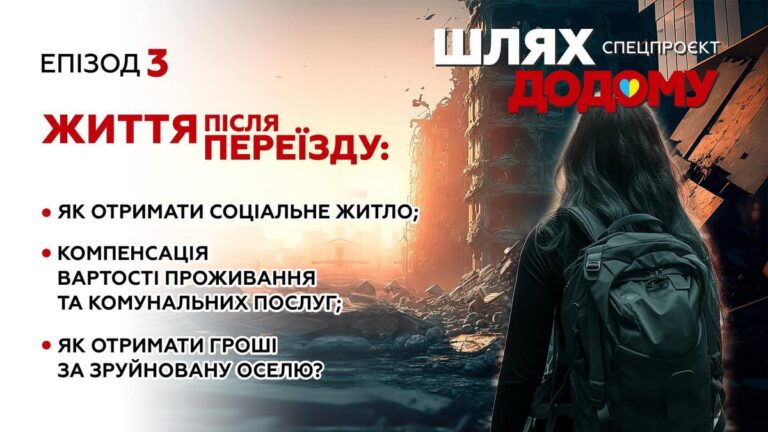
The largest radio station in Western Ukraine, FM Halychyna from Lviv, is actively experimenting with online communication on social networks. According to its director, Olha Kohut, the Way Home program about the adaptation of internally displaced persons in the western regions is one of the most relevant topics for our society.
“Millions of people were forced to leave their homes and seek a new life in safer territories,” she says. “FM Halychyna is currently studying the іутешьутеі of internally displaced persons, problems, and successful cases of integration through an online survey and has already received over 200 candid responses. The radio station wants to become a bridge between IDPs and local communities, to promote their understanding and integration.”
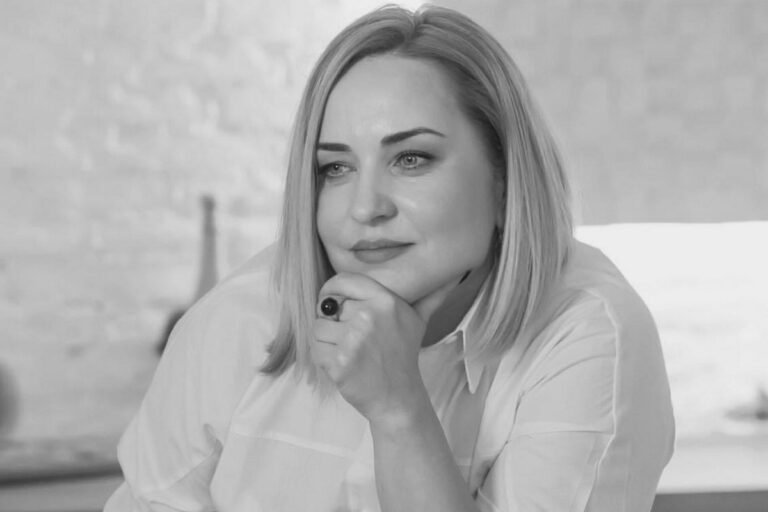
The Way Home program not only highlights the stories of IDPs but also serves as a platform for communication between the authorities, communities, IDPs, and philanthropists. This allows for finding effective ways of support.
“Our goal is to create an effective communication platform for discussing IDP problems”
The editorial staff of the Vysokyi Zamok newspaper conducted a large-scale survey among IDPs, which lasted for more than a week. The results revealed three main problems faced by IDPs in the Lviv Region: providing housing, overcoming language barriers, and access to medical services.
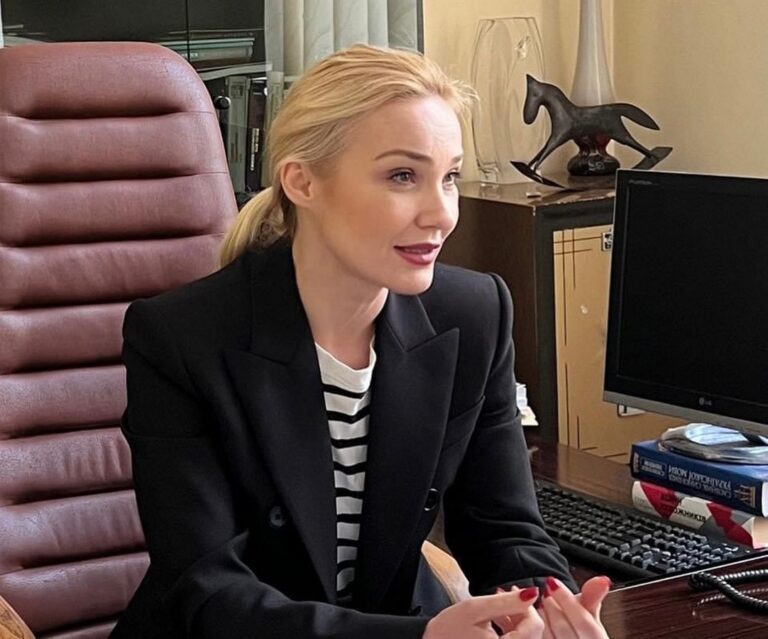
“Respondents specifically noted difficulties with document processing,” explains the editor-in-chief of the publication, Nataliya Baliuk. “The project has several important components. We will prepare a series of materials based on the survey results. We will pay particular attention to successful stories of adaptation of IDPs in the Lviv Region.”
The publication plans to involve experts and representatives of local authorities in the dialogue to find specific solutions to the problems raised. Interviews with officials on state IDP support programs and their effectiveness will be published on the pages of the newspaper and the wz.lviv.ua website. The editorial staff of Vysokyi Zamok expects that the implementation of this idea will not only help IDPs in solving urgent issues but will also increase the publication’s audience by 5% due to the coverage of relevant social topics.
“Helping Internally Displaced Persons (IDPs) Find Support and a New Home”
The Vilnyi Holos newspaper from Kolomyia has launched a project called VDOMA [At Home], which has become a response to the challenges faced by internally displaced persons in the Ivano-Frankivsk Region.
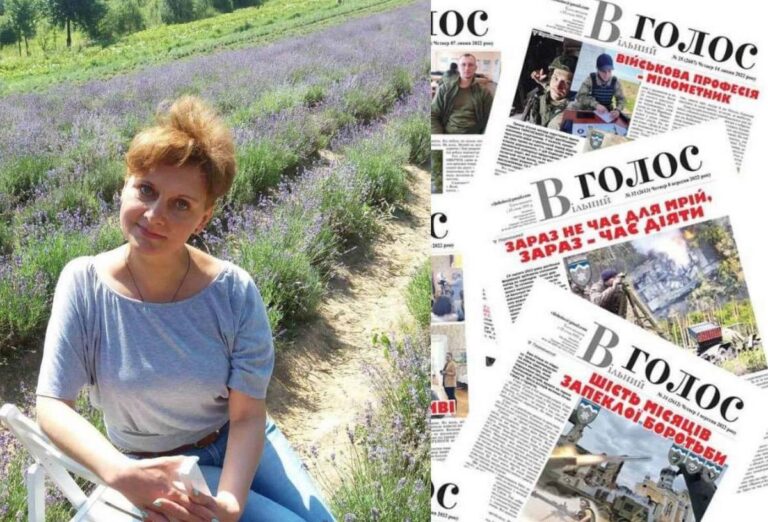
“We strive to create a communication platform where the problems of IDPs will be discussed, and real ways to solve them will be proposed,” says editor-in-chief Valentyna Blyzniuk. “It is important for us that people who have found shelter in Kolomyia feel at home.”
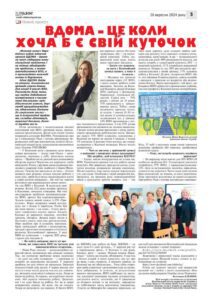 The Kolomyia Community has become a home for over 9,000 IDPs. But, as the editor emphasizes, for many, this “home” is full of difficulties: people face a lack of housing, work, and access to social services. Added to this are psychological problems, adaptation, moral challenges, and even childhood traumas.
The Kolomyia Community has become a home for over 9,000 IDPs. But, as the editor emphasizes, for many, this “home” is full of difficulties: people face a lack of housing, work, and access to social services. Added to this are psychological problems, adaptation, moral challenges, and even childhood traumas.
“We launched the format of the Day of Questions, when our journalists communicate with IDPs, record their requests, and convey them to the authorities through materials. An important role in the project is played by establishing high-quality communication between IDPs, authorities and public organizations. We have already published materials, including interviews with the head of the IDP Council under the Kolomyia City Council and other activists,” she notes.
The newspaper also covers personal stories of IDPs in need of help. For example, the material about journalist Ivan Birchak from Bakhmut, who turned to the newsroom with his problems, became one of the heroes of such publications.
“We sincerely thank the NUJU for their support and assistance because today, the newspaper is a very difficult business. We work practically without advertising, without the support of local authorities. It has been a year since we refused the services of Ukrposhta, so we deliver newspapers to subscribers ourselves,” notes Valentyna Blyzniuk. “However, we do not give up. When we publish materials about our indomitable military personnel, volunteers, and stories about fallen Heroes, we understand that it is such materials that will form the basis of the modern history of Ukraine.”
“Exam for the Government” is a public announcement of the most urgent and acute issues that concern the residents of the Kherson Region.
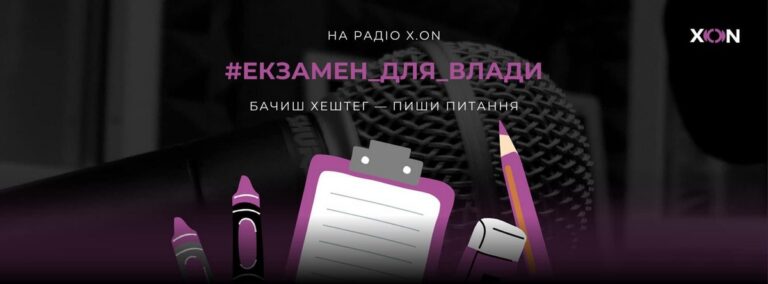
The director of X.ON radio, Mykola Tsymbaliuk, explains, “This is a weekly project with flexible topics. The guests of the programs were local officials from the military administration of Kherson and neighboring communities. All questions asked come from listeners on social networks, and those questions that did not make it into the timeframe are passed on to the guests for his independent communication with the townspeople.
“The Kherson Region is a hot spot on the map of Ukraine. Kherson is a city “at zero.” We have a lot of tasks “with an asterisk:” mines, dropping explosives from drones, shelling, guided bombs… Issues of security, educational processes, culture and sports, humanitarian and epidemiological situation, public utilities – all this requires answers and systematic communicative work,” noted the head of the radio station. “Therefore, the project has already become part of the action plans of departments and administrations. We cover the issues of providing medical and other services, evacuation, heating, etc.”
Radio operators monitor comments under the posts of officials and form a pool of requests based on them. Their task is to moderate the process, inviting representatives of the administration to the studio.
“We focus on the public budget. It’s about how it is received and what is subsequently implemented”
According to the editor of the Cherkasy online media PROCHERK, Nazarii Vivcharyk, the public budget is not just a distribution of funds but also a powerful tool of democracy that allows every resident to feel their involvement in changes in the community. Thanks to it, citizens get the opportunity to directly influence the development of their city or village. As part of the Community Action project, the media creates overview materials on the region, travels to fellow countrymen, and talks about their interesting initiatives that often go unnoticed.
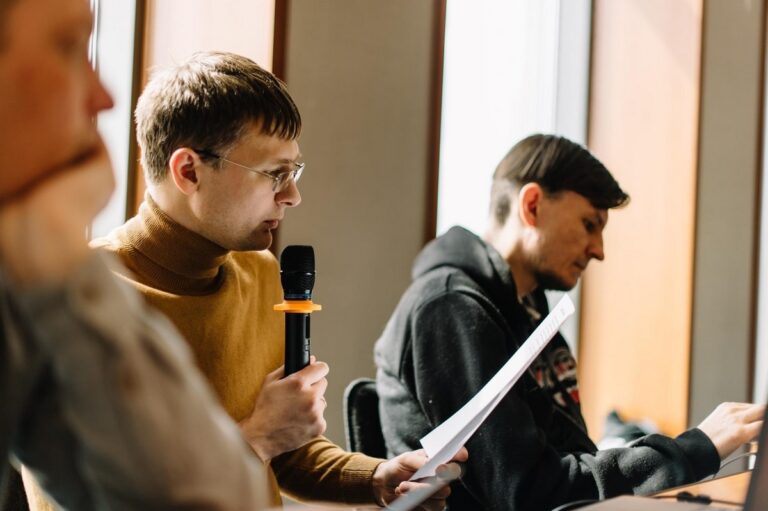
“We see that in different districts of Cherkasy there are initiatives that are financed from the public budget. These can be both large projects, such as the reconstruction of parks or the construction of sports grounds, and small but very important initiatives for the local community: for example, the arrangement of playgrounds or the installation of street lighting,” explains the editor.
According to Nazarii Vivcharyk, the experience of implementing a public budget in the communities of the Cherkasy Region is ambiguous. Although in some cities, such as Uman, this tool is actively used, in others, in particular in Cherkasy, the budgeting process is actually frozen. Despite the challenges, the public budget has great potential for the development of civil society. As the editor emphasizes, the publication seeks to provide an opportunity for fellow countrymen to become co-authors of changes in their communities.
“The main secret of our success is to go to the people.”
The project called District News, published in the Chernihiv newspaper, Visnyk Ch, is another significant example of how local journalism is able not only to highlight the problems of communities but also to inspire their solution.
“We regularly visit the most remote corners of the Chernihiv Region, communicate with residents, and help identify the most painful problems. This allows us to create materials that not only inform but also motivate for change,” says journalist and project manager of the publication Maryna Osipova.
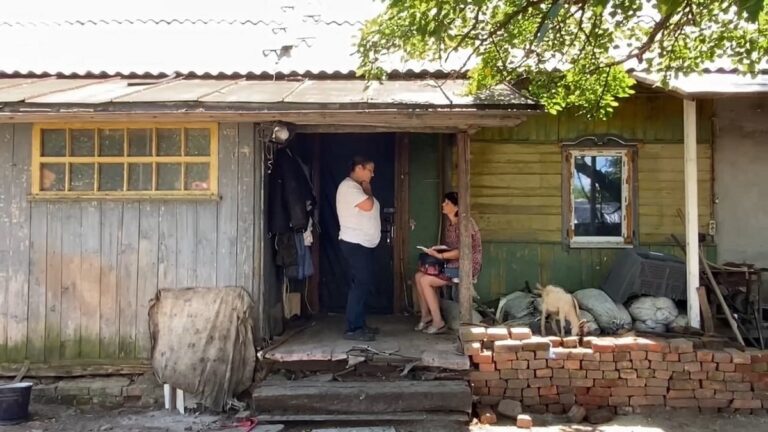
According to her, the editorial staff of Visnyk Ch is not limited to collecting information: media workers become part of local events. Thus, journalists, together with residents, did their household chores of caring for livestock, the development of the surrounding area, etc. All in order to convey the needs of local residents in the most detailed way and understand their lives.
“We help build a constructive dialogue between citizens and local authorities. This is important for solving urgent problems. We can already see how people’s attitude towards officials is changing: trust is growing, initiative and a desire to participate in the life of communities are emerging,” the journalist adds.
In the future, the team plans not only to expand the topic but also to attract new partners, actively cooperate with the audience, and, through joint efforts, make the Chernihiv Region a better place to live.
“Listen and help.”
The Donetsk Region also implements successful communication projects. For example, the Kramatorsk newspaper Technopolis launched a “hotline” for readers – a service that has become a platform between readers and the newsroom, where people share their problems.
“Our editorial phone has never been silent, even before the launch of the “hotline.” Readers called to make an announcement, share an interesting topic, or express an opinion on some issue. But after the launch, the number of calls has increased significantly. This shows that they trust us,” says the deputy editor-in-chief of the publication, Vira Iliyina.
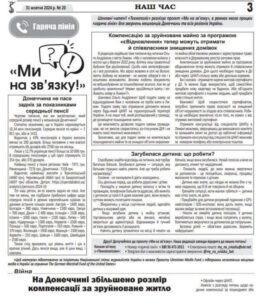 According to her, the audience also actively writes e-mails. The newly created chatbot on Telegram has not yet gained much popularity, but the newsroom plans to improve this tool. Technopolis journalists combine taking calls with their main duties. This, according to Vira Iliyina, is not always easy.
According to her, the audience also actively writes e-mails. The newly created chatbot on Telegram has not yet gained much popularity, but the newsroom plans to improve this tool. Technopolis journalists combine taking calls with their main duties. This, according to Vira Iliyina, is not always easy.
“Our employees are not professional psychologists, but we do everything to support people in difficult moments. For example, one of the first calls was from an elderly woman who was worried that her daughter, being abroad, could not receive a pension in Ukraine,” she says.
“First, you need to calm the person down, give them a chance to talk,” adds the editor-in-chief of the newspaper Oleh Kubar. “We are not a psychological assistance service, but we can listen and prepare an answer if the question turns out to be important for other readers.”
“We do not just collect statistics, but strive to understand the needs and interests of the audience.”
The news site Donbass.ua studies its audience and improves communication with readers through online surveys.
“Our goal is to study the gender, age, and social characteristics of readers, as well as their thematic preferences. The results indicate that they have certain characteristics and priorities,” says the editor-in-chief of Donbass.ua, Oleksandr Bryzh. “The project will help us improve the quality of the content and improve the search engine optimization of the site. Based on the data received, we plan to develop a development strategy and publish materials that are of greatest interest to readers.”
Editor-in-Chief of Leopolis News Andrii Bolkun. Photo from the editor’s Facebook.

The study, which lasted from September to November, has an ambitious goal – to increase the site’s audience by 20%. According to the media manager, the survey was conducted in two stages. First, the team launched a test format and, in October, moved on to a more in-depth survey. The media presented the results in the format of infographics.
“With joint efforts, we are making the town of Sarny a barrier-free community.”
The project of the Sarnenski Novyny newspaper from the Rivne Region is aimed at covering the topic of barrier-free access. According to the editor-in-chief of the newspaper Svitlana Liashko, this area of work turned out to be extremely relevant for locals.
“The idea was suggested by the community residents themselves. We regularly conduct short surveys about what worries them most in everyday life. Most mentioned problems with moving around the city: shortcomings of sidewalks, lack of ramps, difficulties in accessing services for the elderly, lack of bikeways, etc.,” she says.
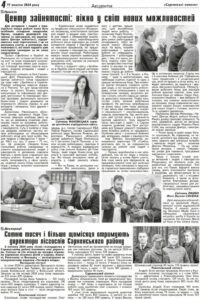 First, the newsroom informed fellow countrymen that a Barrier-Free Council had been created under the City Executive Committee: it explained to people where they could contact with their questions and suggestions regarding infrastructure. The goal of the initiative is not only to highlight problems but also to help the authorities intensify their work in this direction. To determine the most relevant topics, the newsroom conducted a mini-survey, the results of which were published in the newspaper. In addition, it prepared a series of informational-themed materials and useful advice from experts on unhindered receipt of services in the community.
First, the newsroom informed fellow countrymen that a Barrier-Free Council had been created under the City Executive Committee: it explained to people where they could contact with their questions and suggestions regarding infrastructure. The goal of the initiative is not only to highlight problems but also to help the authorities intensify their work in this direction. To determine the most relevant topics, the newsroom conducted a mini-survey, the results of which were published in the newspaper. In addition, it prepared a series of informational-themed materials and useful advice from experts on unhindered receipt of services in the community.
“We hope that such cooperation will help officials intensify their work in this direction. Now its members and the landscaping inspector are studying the location of pedestrian crossings, which have received many requests from citizens, and the possibility of installing elevators in the clinic and hospital,” emphasizes Svitlana Liashko.
“Today, the issue of security and transparency in the use of budget funds is particularly acute.”
This is emphasized by Andrii Bolkun, the editor-in-chief of the Lviv online media Leopolis.news. “That is why,” he continues. “In Lviv, as in many other regions of Ukraine, significant funds are “spinning” in the field of public procurement. Therefore, it is important that these processes are as open to the public as possible d control. Our newsroom is making every effort to do this.”
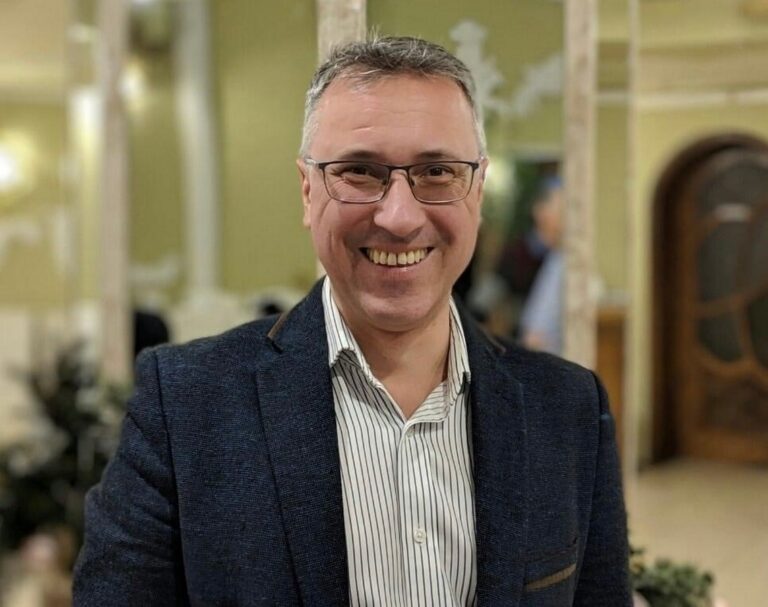
The journalist emphasizes that officials often use the difficult situation in the country, in particular the war, as a disguise for opaque schemes: under the guise of the need to quickly respond to today’s challenges, they make dubious purchases. The editor says that thanks to the support of the NUJU and international partners, the newsroom is able to conduct in-depth analyses of budget expenditures and identify possible abuses, examine tender documentation, and identify conflicts of interest and violations of the law. The purpose of these materials is not only to inform the public and protect its interests but also to promote the use of budget funds as efficiently and transparently as possible.
“The project is a reliable source for us to support the financial stability of the Leopolis.news newsroom. Thanks to our participation in past initiatives, we managed to achieve declassification of the Lviv City Council’s regulatory documents on procurement with our publications,” Andrii Bolkun concludes. “We are convinced that journalism can play a decisive role in the fight against corruption.”
“We help fellow countrymen who have suffered from russian aggression.”
The front-line Kharkiv Region, like many Ukrainian regions, regularly suffers from enemy shelling. Many residents of the Zolochiv Community were left homeless or have seriously damaged housing. This is what Lesia Babkina, deputy editor-in-chief of the local newspaper Zorya, tells us. As part of the NUJU and Marshall Fund, the publication created a people’s guide on e-Recovery for residents who have suffered from russian shelling.
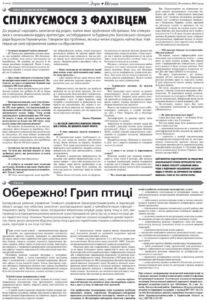 “Despite the fact that we have repeatedly covered the topic of e-Recovery in live broadcasts and video clips, people still have questions,” says Lesia Babkina. “Our project “Towards Awareness – Through Dialogue” is designed not only to help residents of the Zolochiv District but also to create a platform for their unification. It is important that people feel supported and have the opportunity to communicate with the authorities together to solve their problems.”
“Despite the fact that we have repeatedly covered the topic of e-Recovery in live broadcasts and video clips, people still have questions,” says Lesia Babkina. “Our project “Towards Awareness – Through Dialogue” is designed not only to help residents of the Zolochiv District but also to create a platform for their unification. It is important that people feel supported and have the opportunity to communicate with the authorities together to solve their problems.”
In her opinion, the results of the additional audience survey showed all the problematic points in the process of receiving compensation for damaged housing. The newsroom received many questions from readers. However, according to the journalist, the difficulty lies in the lack of a single specialist who could answer all the questions at once. The difficulties relate to both incorrectly executed documents and the technical aspects of submitting applications through the Diia app. The lack of necessary services in the Zolochiv Community is a particularly acute problem.
“The collected questions have already been published in the newspaper and transferred to the relevant specialists to provide competent answers. In the near future, we will publish the experts’ answers both in the printed edition and on all our online resources,” adds the deputy editor.
The People’s Advisor should become a practical tool for those who seek to receive compensation for damaged housing through the eVidnovlennia [e-Recovery] program. The publication plans to regularly update the information and supplement it with answers to new questions from affected community residents.
“Support the psycho-emotional stability of children.”
The social project called Let’s Help A Child Overcome Fears was aimed at psychological support for the youngest residents of the front-line city by the Nikopol radio station, Nostalzhi 102.4 FM.
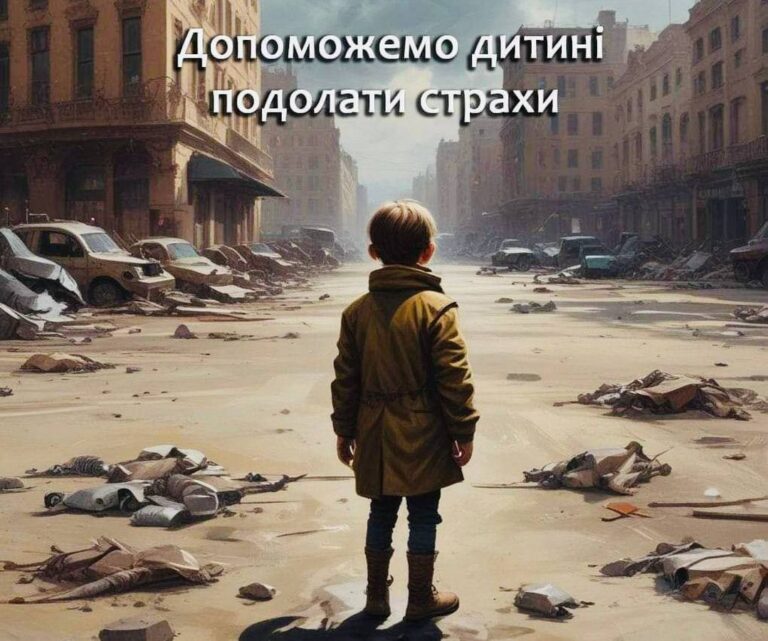
“We want to draw attention to the psychological health of children and provide parents with practical tools to support the psycho-emotional stability of their children,” says the radio station’s information editor, Olena Halina.
According to her, the project caused a significant resonance among listeners even at the announcement stage. The number of questions from the audience exceeded the team’s expectations, so the radio crew decided to dedicate a separate program to each important issue and combine related topics.
The speaker of the project was child psychologist Viktoriya Kovalska, who provided practical advice on how to calm a child during shelling and act correctly during attacks of anxiety or fear.
“We plan to release two more issues in November because the number of requests from our listeners is not decreasing,” emphasizes Olena Halina. Despite the fact that due to constant shelling, many families with children were forced to leave the city, the radio programs reached an audience of about 62,000 listeners.
“This year’s winter is a challenge, so we are helping readers prepare for it.”
Mukachevo online publication PMG.ua is implementing an information project aimed at helping Ukrainians prepare for the heating season.
“This year’s winter may be one of the most difficult since Ukraine’s independence. The reason is the large-scale destruction of the energy infrastructure, which led to systemic problems with electricity supply,” notes the editor-in-chief of PMG.ua Ivan Harahonych.
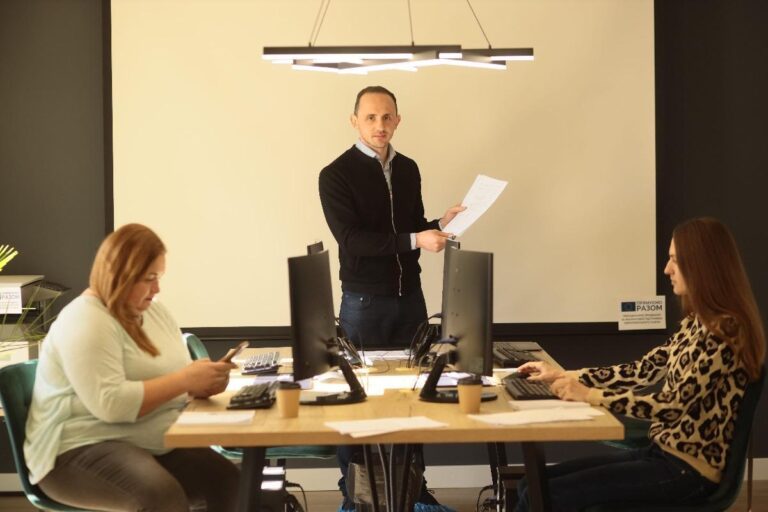
According to him, the team strives to cover all aspects of preparation for the heating season as widely as possible: every month, to prepare two detailed materials on the most relevant issues that concern our audience. Since the beginning of the project, the media has published four in-depth materials. The publications are dedicated to the program of cash assistance for the purchase of solid fuel for certain categories of citizens, the conditions for receiving housing subsidies for the heating period 2024-2025, etc.
“The statistics of views indicate high interest among readers. This confirms the relevance of the chosen topic and the need for further work in this direction,” emphasizes Ivan Harahonych.
“Our goal is to publish at least 12 relevant questions from readers.”
The communication project called I Want to Know, which helps citizens get answers to important questions from officials, is being implemented by the Chernivtsi media agency A.S.S.
“Many people, for various reasons, do not have the opportunity to communicate directly with government representatives. Some do not want to spend time on personal meetings, some simply do not have it, and some do not know who to contact with specific questions, – explains the head of the agency, Oksana Danyliuk. According to her, the main goal of the initiative is to provide an opportunity for ordinary citizens of the city and region not only to express their position on various issues but also to receive specific answers from officials.
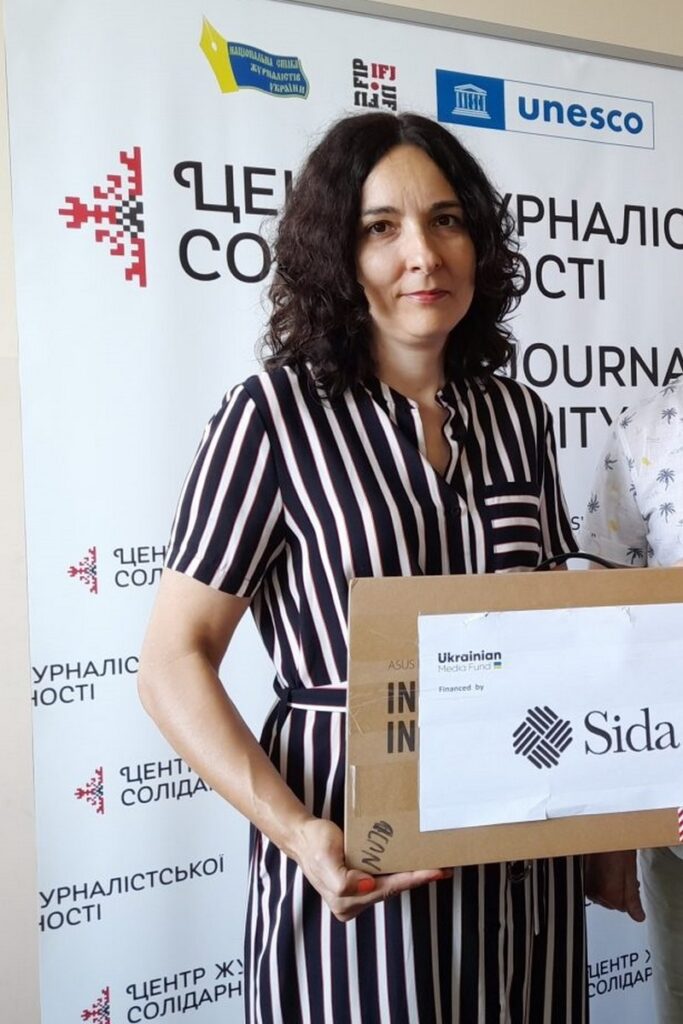
“We use our Facebook page with almost 69,000 subscribers as a starting point for communication. Before each interview, we announce a meeting with an official and collect questions from readers,” says the media worker. “We expect that the overall result of the project will be at least six detailed materials on the website and 12 posts on Facebook. We plan to cover at least 12 topical questions from readers.”
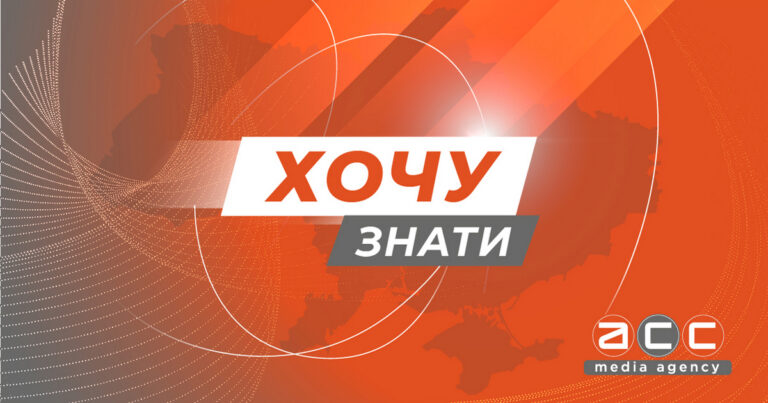
The mechanism of the project, according to Oksana Danyliuk, is simple and effective. The agency team groups the received questions by the areas of responsibility of officials, voices them during meetings, and then publishes the answers on the acc.cv.ua website and social networks.
The I Want to Know project was launched in the spring of 2024 and demonstrates how regional media can effectively serve as a communication bridge between the authorities and the community. According to Oksana Danyliuk, it will continue as long as the audience’s interest in this format of communication remains.
“Without the support of partners, in particular the US Marshall Fund, it would be extremely difficult for us to ensure a high level of organization.”
Andrii Rusyniak, Director of RAI TV and radio company from Ivano-Frankivsk, emphasizes, “International support helps regional media strengthen civil society in Ukraine. The RAI team is implementing a large-scale project called The Power of the Word with the assistance of the NUJU and the US Marshall Fund.
“Thanks to the assistance, we attract experts, improve the quality of content, and, most importantly, remain independent from the influence of political or business interests,” he notes. “Financial support is important not only for meeting current needs but also for the stable development of local media. This is especially important now when the prospects for financing projects in 2025 remain uncertain.”
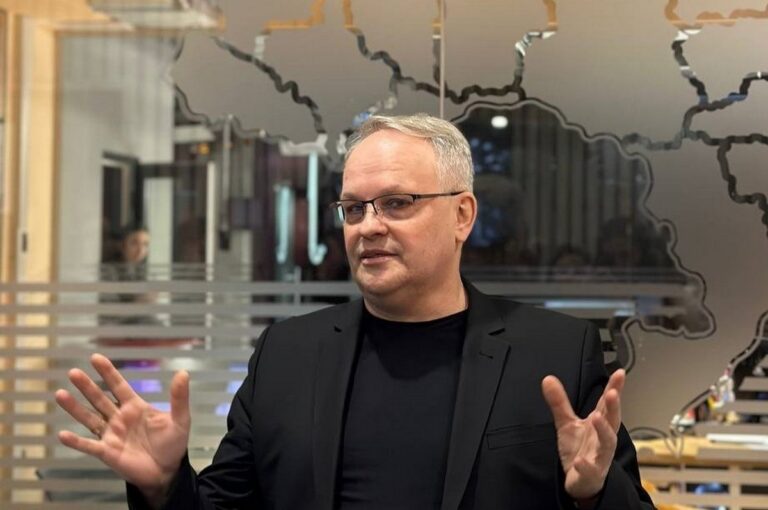
The Power of Words project aims to activate public opinion, in particular among young people. Participants in the discussions are representatives of youth councils, public activists, local managers, and experts. To this end, at least six speakers gather in the studio to discuss topics related to youth participation in community management, challenges in social policy and ways to solve urgent issues.
“We want to create a platform for dialogue where everyone – from young people to government officials – can speak out, share their ideas and prove their own position. This format promotes discussion of problems and finding real solutions,” explains the director of the TV and radio station.
Despite significant achievements, the newsroom faces challenges, in particular, the lack of experienced personnel and training of young journalists and moderators who will be able to work effectively on such projects. Currently, the team itself takes on the moderation of discussions, but in the future, it plans to attract new specialists. Another problem is the uncertainty of financial support after the end of the current funding cycle. According to Andrii Rusyniak, it was thanks to the help of international partners that the project got a chance to be implemented. However, systematic support is needed to ensure its long-term prospects.
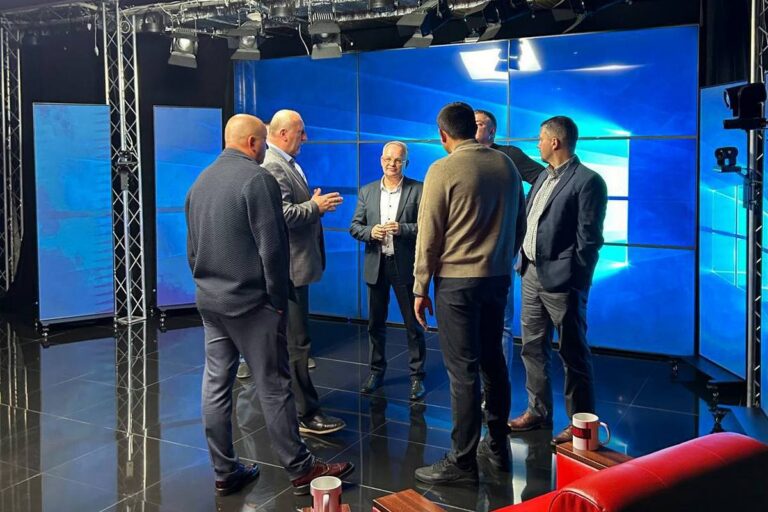
“Nowadays, social networks often become a source of manipulation and disinformation, and the role of independent media is growing. We offer a platform where people can discuss their problems and jointly seek ways to solve them,” he emphasizes.
According to Andrii Rusyniak, that is why independent media that work on the basis of facts and objectivity are necessary to preserve a healthy media space in the country. At the same time, for the successful implementation of such ideas, it is necessary to attract a large staff of people – from cameramen to sound engineers. Only thanks to the support of international donor organizations can proper organization and a high level of project implementation be ensured.
The head of the TV and radio company emphasized that now, more than ever, Ukraine needs independent media that are not subject to state influence. He noted that only thanks to such publications can an open and honest public dialogue be created.
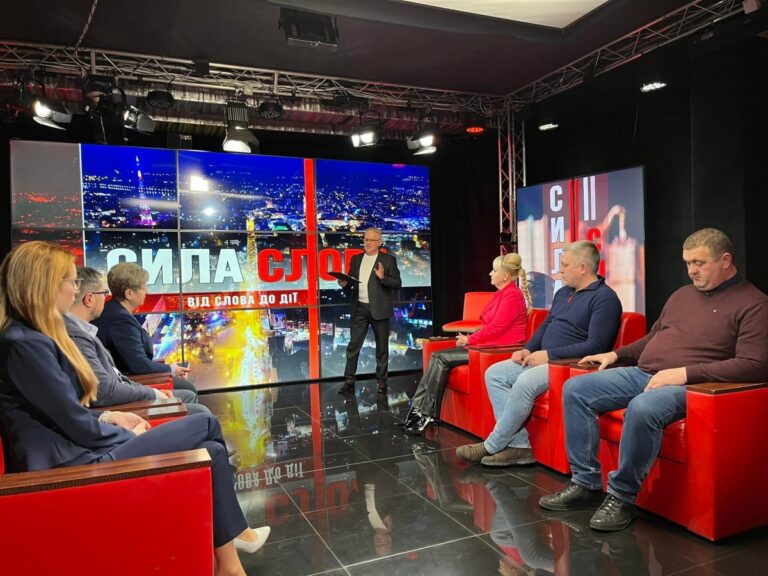
“If individual political forces or groups that control the media dominate, we will again find ourselves in a situation similar to the oligarchic model that we have already experienced. And these processes may leave us at a stage where true democracy will be absent,” he concludes. “For the stability and development of the country, we must seek stable funding and maintain independence. Only in this way will we provide a platform for honest and open discussions, as well as create conditions for constructive dialogue, which will allow society not only to solve problems but also to strengthen national unity.”
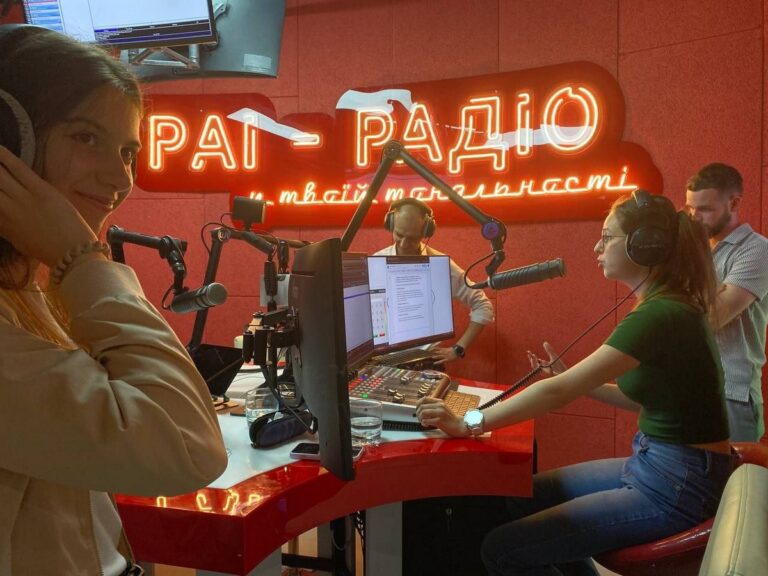
The success of regional media largely depends on their ability to satisfy the information needs of the audience and solve the real problems of communities through dialogue and cooperation. Those that focus on the requests of their audience and meet its needs are able to achieve concrete results, in particular, increase the number of readers and expand the geography of influence. Financial support from the German Marshall Fund significantly helps newsrooms implement projects aimed at strengthening ties between the community and the authorities.
“The information product produced by newsrooms must satisfy the demand of the consumer of this product – that is, the media audience. These seem like obvious things, but there is not always enough time, financial or human resources for them,” notes the project manager Iryna Khromenko. “The previous project to establish communications between the media and communities had quite measurable results: the newsrooms studied the requests and needs of the audience, worked on the topics proposed by it, posed questions to the authorities, and sought to solve problems in their communities. Thanks to relevant publications, the media increased their audience, and some even expanded the geography of the presence of printed publications. Such a positive result inspired some newsrooms to continue the initiatives they had started even after the support ended.”
The current project is still ongoing, and we will definitely sum up and analyze the results after its completion. However, we can already say that the newsrooms’ initiatives were successful.
Valeriya Muskharina, NUJU Information Service

 THE NATIONAL UNION OF
JOURNALISTS OF UKRAINE
THE NATIONAL UNION OF
JOURNALISTS OF UKRAINE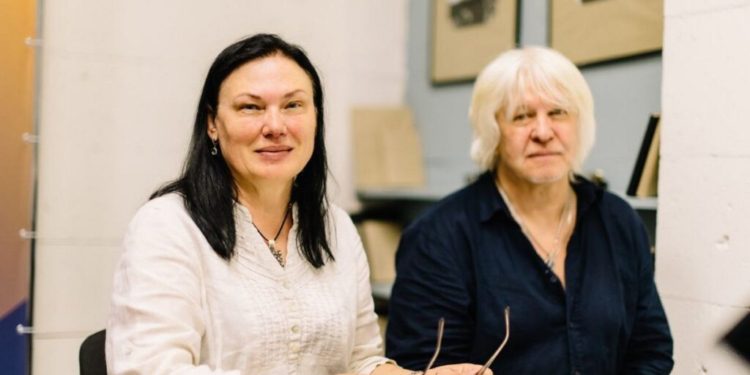
















Discussion about this post